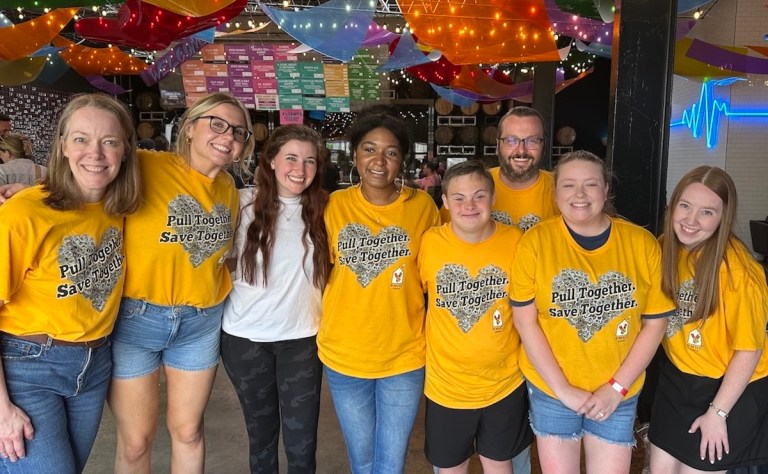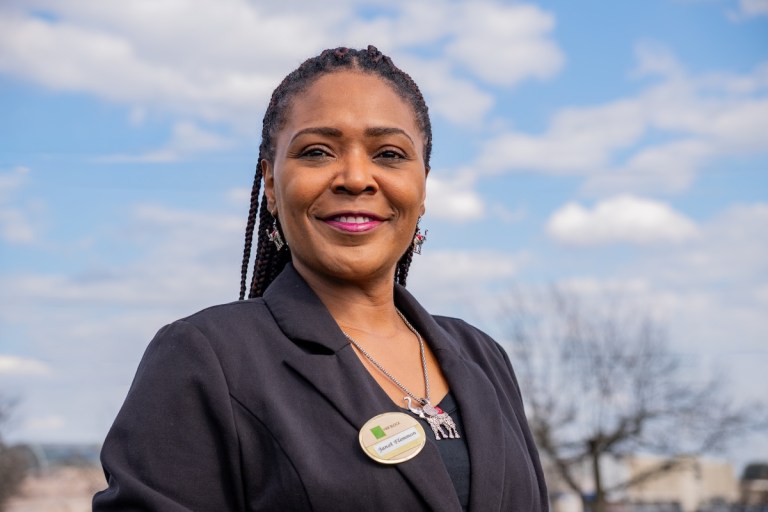How to keep your kiddos safe while at home, from a poison control expert
Reading time: 5 minutes
Partnered Content

Kiddos are spending more time than ever at home right now. With many parents working from home, 24/7 attention can be a challenge. Ann Slattery, Director of the Alabama Poison Information Center at Children’s of Alabama, weighed in on how parents and caregivers can minimize risks and keep their kids safe inside the house and outside of it. Read on to get her tips!
Risky Business

Most parents (and anyone who has spent time with kids, for that matter) know that children can get into trouble in the blink of an eye. While wrapping them in bubble wrap is generally discouraged, there are a few things you can do to minimize the risks they’ll face around the home.
Right now, with so many daycare and preschool-aged children at home, the Alabama Poison Information Center at Children’s of Alabama is seeing a significant spike in calls when compared to recent years.
We sat down (well, virtually) with a poison information expert to see how parents and caregivers can minimize risks, inside the home and out.
Meet the Experts

Ann Slattery, DrPH, RN, RPh, DABAT, is the Director of the Alabama Poison Information Center. Located at Children’s of Alabama right here in Birmingham, this center has been serving the people of Alabama since 1958. They offer free and confidential poison information and treatment recommendations to all ages 24 hours a day, 365 days a year.
- Hotline: 1-800-222-1222
- Learn more
Getting Outside

Spending time in your own yard is encouraged! Not only does it provide kids with much-needed screen breaks and fresh air—it also stimulates the imagination, allows for exercise, strengthens the immune system and more. However, risks can certainly be associated.
Some of the biggest outdoor risks include:
- #1 exposure in children less than a year is plants—after all, young children are notorious for attempting to eat anything they can get their hands on. Find a list of toxic plants at this link or on the Poison Perils app.
- Snake and insect bites can also be a concern. Avoid snakes by keeping your child’s play area free of large piles of yard debris. Some bug bites are unavoidable in the south, but bug spray can help. Dr. Slattery recommends an insect spray with less than 10-15% DEET sprayed on children’s clothes rather than skin when possible and reapplied per directions. DEET containing insect repellants should not be used on children less than 2 months.
- Read more about venomous snakes and poisonous insects here.
- Another threat that might not be at the forefront of parents’ minds is the sun. Even if the weather is breezy and cool, the sun can still wreak havoc. Be sure to lather up any exposed skin in sunscreen and reapply every few hours.
Older children can certainly play outside in a fenced-in area on their own after having a conversation about avoiding things like ant hills, piles of debris, etc. Younger children should never be outside unsupervised.
Staying In

Although you may not realize it, kids statistically get into more trouble within the home than outside. In fact, the top three threats to children six years of age or younger are all found indoors.
- #1 is household cleaning products. Find many of the common items you should be carefully controlling at this link or on the Poison Perils app.
- #2 is cosmetics in the state of Alabama, even though cosmetic products top the national list of accidental exposures in children.
- #3 is analgesics, which includes many common over-the-counter pain relievers.
Now, most houses are going to have these things. The best practice is to keep items out of sight and out of reach. A.K.A. not under the sink! Dr. Slattery recommends the common cabinet above the refrigerator, plus keeping a child lock on cabinet doors no matter where you store toxic items.
75% of exposures happen while products are in use. Think—you’re cleaning. Your phone rings. You step into another room and leave a bottle of cleaning spray on the coffee table. Easy access = trouble. The good news is, it’s a simple fix: just take your products with you when you go.
How to be Prepared

The moral of the story here is that preparation is key. Educating yourself and older children is a great first step to take. Children’s of Alabama has made it easier than ever to get started. Download the FREE Poison Perils app today. It includes a guide to toxic plants and wildlife, complete with photos.
As a reminder, the hotline provides 24/7 assistance to Alabama residents of all ages, not just pediatric cases. I asked for more guidance on when to call the hotline vs. 911—here’s what Dr. Slattery had to say:
If your child is losing consciousness, having a seizure or difficulty breathing, was bit by a snake, or known to have ingested something to which they have a known allergy—call 911.
In all other cases, call the hotline at 1-800-222-1222. They’ll talk you through appropriate treatment steps and will follow up according to the reaction timeline. It’s as easy as that!
Stay safe and healthy, Birmingham! For more information, check out The Alabama Poison Information Center at Children’s of Alabama here.
Partner




